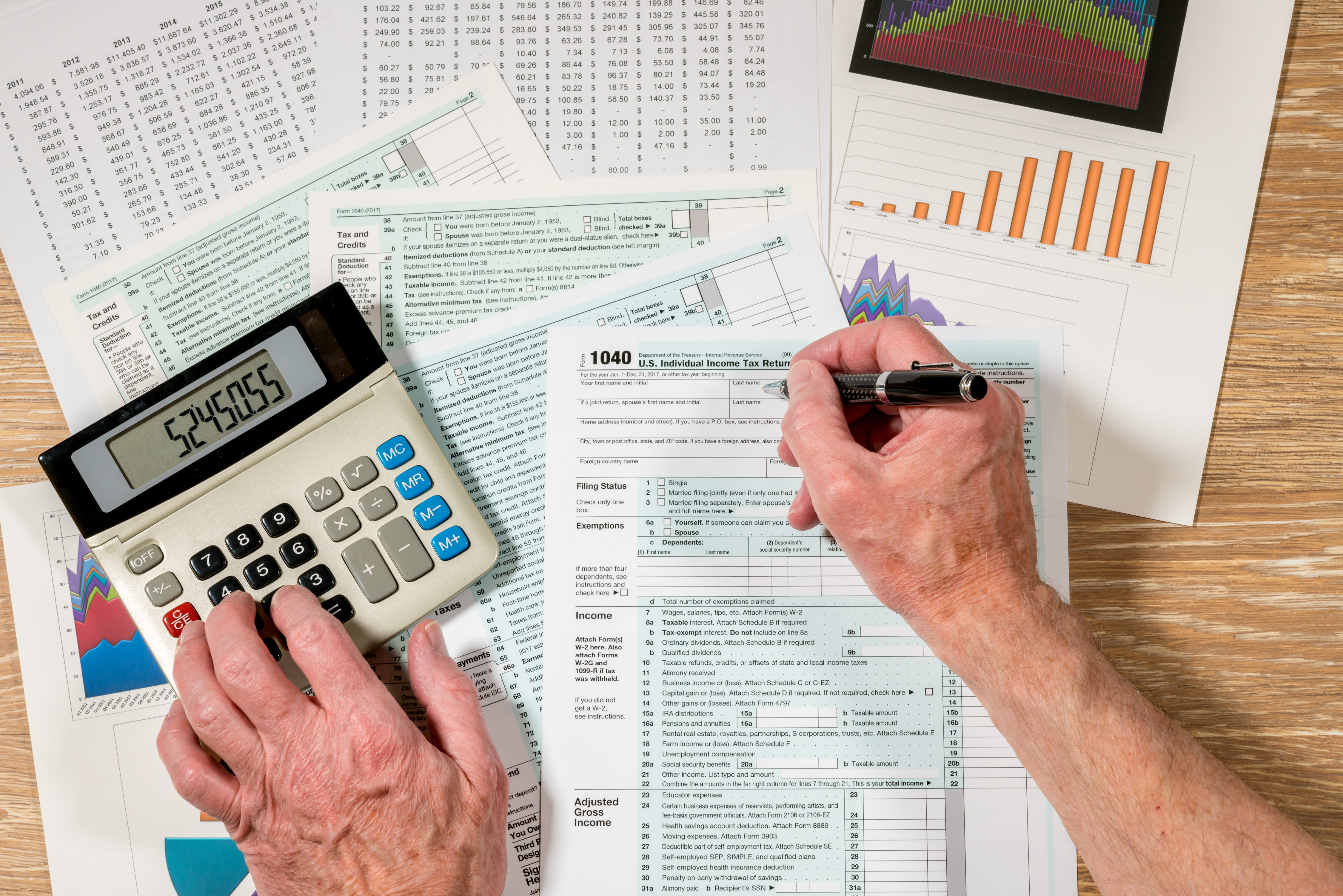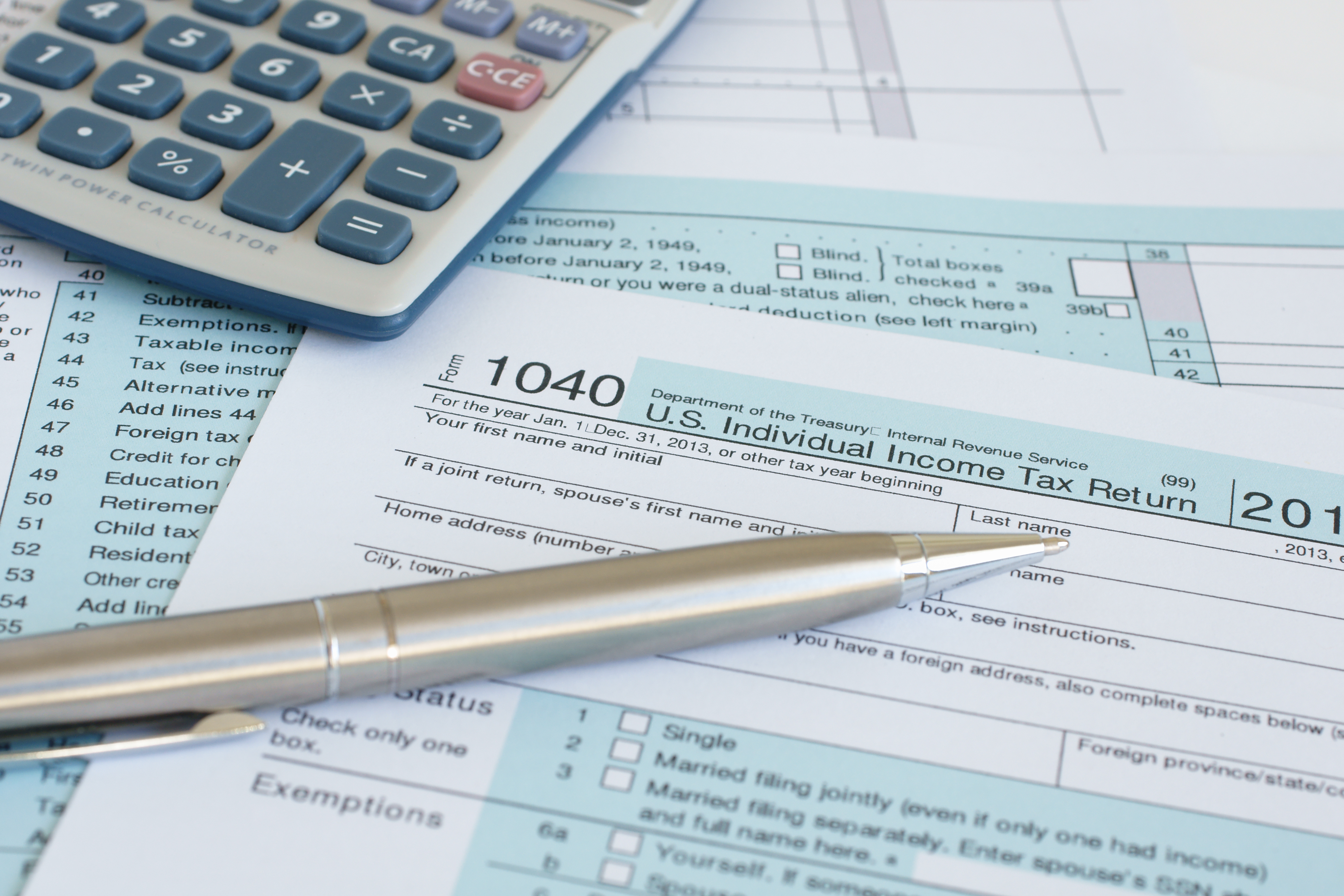The 2022 tax deadline is officially here: Tuesday, April 19 is the final day to file your 2021 taxes in Massachusetts.
Tax Day generally falls on April 15 but was delayed to April 18 this year because Emancipation Day, a holiday observed in Washington, D.C., was celebrated on the 15th.
In Massachusetts, residents get an additional day to file their federal and state income tax returns because April 18 is Patriots Day, a state holiday. Maine also celebrates Patriots' Day, so they get an extra day too.
If you aren't able to file or you miss the April 19 deadline, make sure you know your options going forward, what the penalties are, and what your next steps should be.
Get Boston local news, weather forecasts, lifestyle and entertainment stories to your inbox. Sign up for NBC Boston’s newsletters.
From filing a tax extension, to penalties if you miss the deadline, to tax refunds, here's what you need to know.
What Happens if you Miss the Tax Deadline And You Don't File an Extension?
If you file your taxes after the April 19 deadline, you may get hit with a Failure to File Penalty.
According to the Internal Revenue Service, "The Failure to File Penalty applies if you don't file your tax return by the due date. The penalty you must pay is a percentage of the taxes you didn't pay on time."
The amount you may have to pay is calculated by how late you file your tax return, and the amount of unpaid tax as of the original payment due date. Interest can also be changed on a penalty. Here's a breakdown of the math.
If your return is over 60 days late, the minimum Failure to File Penalty is $435 (for tax returns required to be filed in 2020, 2021 and 2022) or 100% of the tax required to be shown on the return, whichever is less.
What Happens if you Can't Afford to Pay Your Taxes When you File?
If you can't pay your taxes when you file your taxes, you might get hit with a Failure to Pay Penalty.
According to the IRS, "The Failure to Pay Penalty applies if you don’t pay the tax you report on your tax return by the due date or approved extended due date. The penalty you must pay is a percentage of the taxes you didn’t pay.
However, if you aren't able to pay your taxes on the day they are due, you may qualify for an online payment plan (including an installment agreement) that allows you to pay off an outstanding balance over time.
Once your online application is complete, you'll receive immediate notification of whether your payment plan has been approved.
Those payment plans can include:
- Short-term payment plan – The payment period is 120 days or less and the total amount owed is less than $100,000 in combined tax, penalties and interest.
- Long-term payment plan – The payment period is longer than 120 days, paid in monthly payments, and the amount owed is less than $50,000 in combined tax, penalties and interest.
I Missed the Deadline to File my Taxes. Can I File For a Tax Extension?
Yes — but only as long as you request to file to file an extension by tax deadline day. Extension requests must be filed no later that the regular due date of your return, the IRS states on its website.
In other words, the request to file an extension, and the 2022 tax deadline is on the same day: This year, that day is April 19.
What Does a Tax Extension do?
According to the IRS, an extension is simply a six-month extension to file your taxes.
However, it does not grant you an extension to pay your taxes. You still must pay your taxes on time to avoid any penalties or interest.
How do I Request a Tax-Filing Extension? What Form do I Need to Fill Out?
You'll need to fill out Form 4868 in order to file for an extension. You can e-file that for free, using Free File.
Who Can Request to File a Tax Extension? Are There Any Restrictions on Who Gets an Extension?
Any individual tax filers, regardless of income, can electronically request an automatic tax-filing extension.
To get the extension however, you must estimate your tax liability on the Free File form, and should also pay any amount due.
How Long is a Tax Extension?
A tax extension gives you an additional six months to file your taxes.
According to the IRS, one out of 10 refunds is issued in less than 21 days.
As of the week ending April 1, the IRS has sent out more than 63 million refunds worth over $204 billion.
OK, I've Filed for an Extension. What Day Are my Taxes Now Due?
Taxpayers requesting an extension will have until Oct. 17 to file a return.
Your return is considered filed on time if the envelope is properly addressed, postmarked, and deposited in the mail by the due date.
How Can I Check the Status of My Tax Return?
The Massachusetts Department of Revenue says that in order to check the status of your personal income tax refund, you'll need your Social Security number or Individual Taxpayer Identification Number, the tax year of the refund and the amount of refund.
You can check it online through MassTaxConnect or by calling 1-800-392-6089.
Electronically filed returns take up to six weeks to process. Paper returns take up to 10 weeks.
What if I'm Still Awaiting my 2020 Tax Return?
The IRS says it "continues to make progress in this area and has taken numerous steps to help address this issue."
If you are still awaiting a 2020 tax return, you do not need to wait for it to be fully processed in order to file your 2021 taxes.
According to the IRS, those with unprocessed 2020 tax returns, should enter $0 (zero dollars) for last year's AGI on their 2021 tax return when electronically filing.
How Soon are Tax Refunds Issued?
According to the IRS, one out of 10 refunds is issued in less than 21 days.
As of the week ending April 1, the IRS has sent out more than 63 million refunds worth over $204 billion.
What's the Average Tax Refund?
The average refund is $3,226, according to the IRS.
What if I'm Still Awaiting my 2020 Tax Return?
The IRS says it "continues to make progress in this area and has taken numerous steps to help address this issue."
If you are still awaiting a 2020 tax return, you do not need to wait for it to be fully processed in order to file your 2021 taxes.
According to the IRS, those with unprocessed 2020 tax returns, should enter $0 (zero dollars) for last year's AGI on their 2021 tax return when electronically filing.
Who Do I Contact if I Have Questions?
You can call the Massachusetts Department of Revenue from 9 a.m. to 4 p.m., Monday through Friday at 1-800-392-6089.
For the most up-to-date information, forms, schedules, and instructions for the 2022 tax season, Massachusetts residents can click here.



